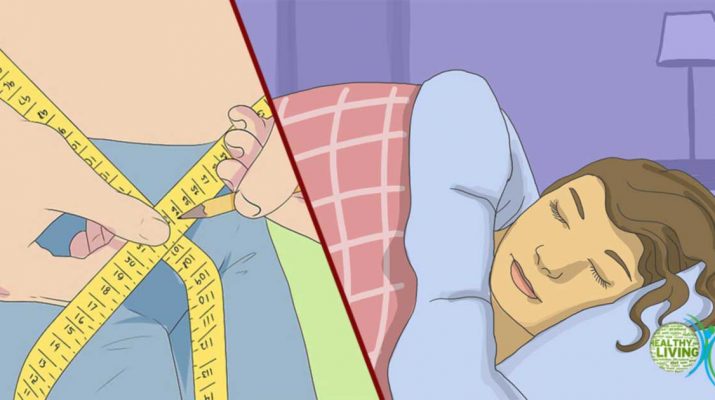A conducted study says that sleeping an extra hour every night, helps you lose an inch off your waistline. Also, you may miss a few pounds next time when you get on your scale.
Researchers studied 1,600 people in the United Kingdom and discovered that sleeping more than 8 hours every night helped them in getting lower BMI (body mass index).
When they compared these people with those who slept 7 hours or less, found out they had smaller waistlines. Also, people who slept more had lower HDL (good cholesterol).
Namni Goel, a sleep researcher (Perelman School of Medicine at the University of Pennsylvania, Philadelphia) was not part of the study, says that this experiment is trustworthy because it involves a larger number of people.
Gregory Potter (School of Medicine at the University of Leeds, West Yorkshire) and his colleagues examined data from four years for this study.
The data was from a national way nourishment and nutrition inquiry that also follows different health and living habits between citizens of England, Scotland, Wales, and Northern Ireland.
A number of 1,615 adults reported their sleep and food diaries, together with weight, height, and blood pressure.
Additionally, half of the partakers gave blood samples to help the researchers examine several measures of metabolic health like thyroid hormone levels, cholesterol, blood sugar.
The researchers made three groups of the partakers based on the average sleep length. The top third had approximately 8.44 sleep hours (give or take 40 minutes), the middle third had 7.26 sleep hours (give or take 15 minutes), and the bottom third had 5.88 sleep hours each night (give or take 52 minutes).
When the team compared the top third and the bottom third, they found out that the former had lower BMI than the latter and for 2 points (3.2kg)
People who slept longer had 1.6 inches smaller waistline than those who slept less.
According to the study team, every extra hour was connected to 0.9 cm difference in the size of the waistline, and 0.46 of a BMI point.
Some blood markers showed better results in people who slept more. Anyway, after the researchers adapted for some different factors, there were no meaningful differences.
The team did not discover any connection between the length of sleep and nourishment, even though Goel noticed that sleep and food daily diaries are rarely accurate.
According to Goel, currently, there are studies attempting to find out what is going on behind sleep and weight problems. Anyway, her opinion is that people get weight because of overeating.
As Goel wrote in an email, people who lack sleep eat food rich in calories, fats. She said that the reason behind this might be the brain centers stimulating humans to eat those kinds of foods.
Studies have found that lack of sleep increases the hunger, appetite, and of course, food intake, according to Dr. Samuel Klein (director of the Center for Human Nutrition at Washington University School of Medicine, St. Louis).
Klein was not part of the study, and he said that if people want to sleep better, they should get more sleep and increase the hours they assign for sleep.
An email of Klein says that sleeping in a cold and dark room, not using electronics before bed, going to bed earlier, and waking up later are some of the things that make a quality sleep.
Source: GMANetwork

